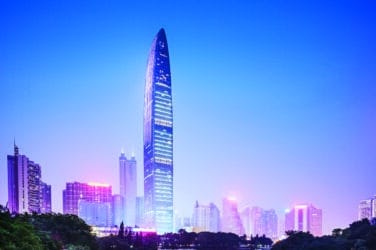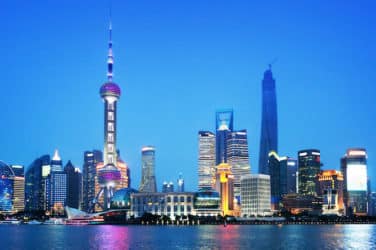
Some market participants are casting doubt over the Hong Kong stock exchange’s attempt to purchase the 135-year-old London Metal Exchange (LME).
Shares in Hong Kong Exchanges and Clearing (HKEx) tanked after the operator of the Hong Kong bourse emerged victorious on June 15 in the bidding war for the world’s largest metals market. HKEx has no experience in the commodities market.
The $2.2 billion deal, if agreed by LME shareholders and approved by UK regulators, for the Leadenhall Street-based exchange in the City’s financial district—one of the last bastions of open outcry trading—will see the centre of power for commodities trading, namely Chicago and London, begin to shift eastwards towards China.
“The bid is not transformational, as there is very little synergy potential—it is mainly one party bringing its target acquisition closer to its almost primary market,” said Philippe Carré, global head of client connectivity for trading and technology firm SunGard’s capital markets business in London.
“The LME sets the price for the vast majority of the world’s base metals and HKEx stands at the gateway to China, the world’s largest consumer and producer.
“The price being paid is eye-watering. It values the LME at 180x net income and at 22x the last traded price for the exchange’s shares. It opens up HKEx to accusations of overpaying, but, then again, how do you value something unique? The LME is comfortably the major center for the trading of metals derivatives contracts, with a global market share of about 80%.”
Others in London are questioning the role that the Beijing government could play. However, HKEx says it is free from the influence of Beijing and operates under strict corporate governance rules.
As the LME sets prices for industrial metals—with benchmark contracts for copper, aluminum and zinc—and also governs their trading, including the regulation of a global network of strategic warehouses, the LME plays a pivotal role in world trade and traders are fearful that the Chinese government will interfere in this process.
There are also suggestions that HKEx is planning to change the rules governing the LME’s lucrative warehouse network in an attempt to shorten waiting times to take delivery of a metal. The LME currently only allows companies to release a small fraction of their inventories, thus producing bottlenecks. Critics say this bumps up rental income for the LME.
HKEx, though, could use its close ties with China, the world’s largest consumer of metals, to accelerate the establishment of LME-approved warehouses in China, while it may create closer ties with the Shanghai Futures Exchange (SHFE), China’s largest commodities market. Charles Li, chief executive of HKEx, has said that the combined HKex and LME will seek a “collaborative relationship” with the SHFE rather than compete with the mainland exchange.
“HKEx’s acquisition of the LME is not a good decision,” said a London-based market analyst. “HKEx has no commodities experience although it makes sense for the Chinese to get control of the markets. The LME also wants a basis to expand its warehouse network. But the LME could easily have done a joint venture with the Shanghai Exchange instead. The Chinese market right now is limited to Chinese participants. It’s relatively protected.”
Following on from the failed super-exchange mergers between transatlantic exchange operator NYSE Euronext and its German rival Deutsche Börse in February, as well as last year’s failed merger attempts between the London Stock Exchange and Toronto’s TMX Group, operator of Canada’s two national stock exchanges, and the Singapore Exchange’s failed bid for the Australian Stock Exchange, which were all scuppered by either the regulators or shareholders, Carré at SunGard believes the LME-HKEx deal stands a better chance of success.
“The price and assurances on the maintenance of transaction terms and LME’s business model look likely to win shareholder approval,” he said. “The approval of the UK regulator looks a little more complicated (political interference is possible, with yet another UK exchange passing into foreign hands), but may well be granted: the LME will remain under UK oversight, and HKEx has undertaken to maintain a robust governance structure—although this last promise might merit examination, coming as it does from an exchange which has six of its 13 board members appointed by the Hong Kong government.
“The HKEx strategy depends not only on the continued vitality of Chinese growth, but also on the loosening of rules that impede Chinese firms’ access to foreign exchanges. The determining factor may ultimately be the willingness of the China Securities Regulatory Commission to allow HKEx to compete on the same terms as the mainland Chinese exchanges. Small wonder, then, that we see nervousness reflected in HKEx’s share price.”





